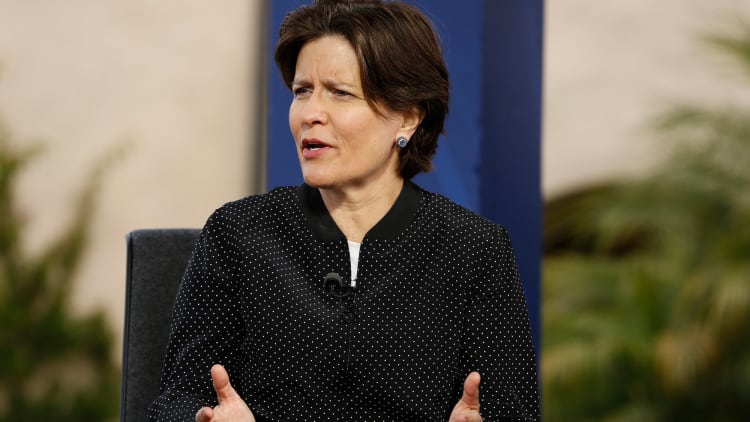Former Google employee James Damore's viral anti-diversity memo has prompted a series of leaders to speak out on its inaccuracies. Among them are successful tech executives such as Facebook COO Sheryl Sandberg and YouTube CEO Susan Wojcicki.
In the 10-page manifesto titled "Google's Ideological Echo Chamber," the male software engineer argues that biological differences between men and women are to blame for unequal representation of women in tech and leadership.
But a recent study of 51,418 leaders in the U.S. and internationally finds women are considered more effective than male leaders.

In an update to leadership development firm Zenger Folkman's 2012 survey data published in the Harvard Business Review, company president Joe Folkman provided CNBC Make It the results of the company's latest survey.
Folkman is a psychometrician, or a psychologist with a specialty in computer science and statistics, who designed a tool to measure leadership effectiveness. The firm notes that although more women have been entering the U.S. workforce and contributing growth to the nation's GDP, women remain an untapped resource.
The following results from Zenger Folkman's research demonstrate three ways the former Google employee's anti-diversity memo is wrong about women in leadership:
Incorrect claim #1: Women are passive and don't take initiative
Damore claims that women express their extroversion as "gregariousness rather than assertiveness."
"This leads to women generally having a harder time negotiating salary, asking for raises, speaking up and leading," he writes in the memo.
On the contrary, Folkman's research found that female leaders rank the highest in their ability to take initiative and drive for results.
"The assumptions in the memo were that women are more passive, but taking initiative and being results-driven doesn't sound passive to me. It sounds like they're very assertive, they get stuff done and they make things happen," Folkman says.
In total, women scored higher than men in 13 out of the 16 leadership competencies, tying only for their tendency to be innovative.
Incorrect claim #2: Neuroticism and lack of drive impede women's career growth
Although he says "Google is already making strides in many of these areas," Damore claims more women would hold tech and leadership jobs if these fields weren't as stressful.
While men scored higher than women in their tendencies to have technical/professional expertise and develop strategic perspectives, Folkman points out this may be due to women's comparably lower confidence in their trades.
"Are women naturally less confident? Probably not. But if in a situation where people are doubting you or questioning your abilities, that would even make me less confident," Folkman says. "I think it's more about the company culture that creates that lack of confidence."
Incorrect claim #3: Empathy steers women away from coding jobs
Folkman points out that if women at Google actually do feel such stress or lack of confidence in their work, it's likely less about their technical abilities and more about company culture.
"In organizations where women don't feel like second-class citizens and they don't feel abused, they actually feel empowered. They feel like they're taken seriously and like they have a future there," Folkman says.
This assumption that women perform best in nurturing roles "just puts women in a box." If anything, their ability to empathize further sets them up for leadership roles, he says.
"A great leader can connect with people, and we find that as leaders progress in an organization, their ability to empathize and understand people is absolutely critical for a senior executive," Folkman says. "If a leader doesn't do that, they don't get the kind of engagement and commitment from employees."
Don't miss:
Thinx just got a new CEO. Here's what she wants to accomplish in her role
Why being company founders helped Bill Gates, Jeff Bezos and Reed Hastings succeed as CEOs



